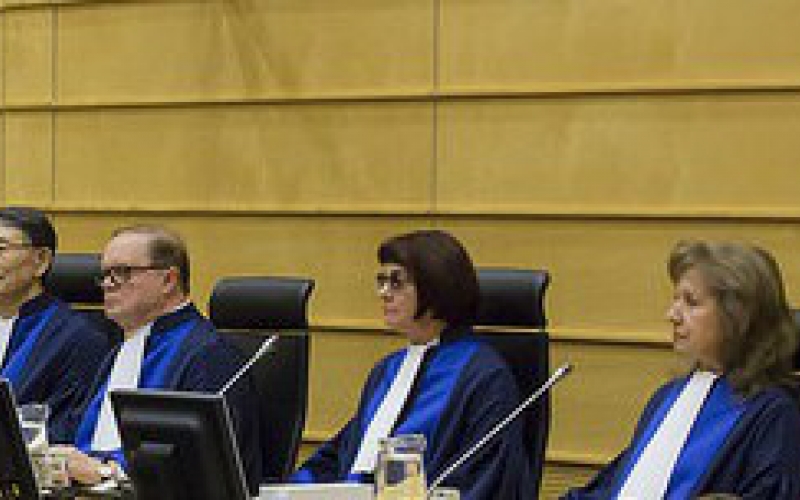Meet the ICC’s new judges

South Korea’sChang-ho Chunghas served as a judge at the only UN-backed international tribunal in Asia, the Extraordinary Chambers in the Courts of Cambodia (ECCC) for the past three years. As an ECCC judge, he was exposed the importance of securing victims’ participation as part of the justice process. Before joining the ECCC, he accumulated more than 10,000 cases worth of experience in South Korean courts. Read more…
As a Hungarian professor of public international law at the University of Budapest, Péter Kovács holds a strong theoretical background, having conducted extensive scientific research on various aspects of international humanitarian law, including the development and limits of international jurisprudence. His numerous published articles and books have been cited both in his own country and further afield. Kovács’ nine years as a judge on the Hungary’s constitutional court allowed him to put his theoretical knowledge to practical use in approaching and analyzing the protection of fundamental rights. Read more…
Piotr Hofmański of Poland has experience in both criminal and international law. He has been an academic expert in the field of criminal law and procedure for over 30 years, with a focus on international cooperation in criminal matters. His research also emphasizes the upholding of human rights and fundamental freedoms, especially in relation to the rights of the accused and victims, demonstrating a deep understanding in the delicate balance between the two. Hofmański has also had a lengthy career as a judge for over 20 years, serving in the criminal chamber of the Polish supreme court since 1996. Read more…
Marc Perrin de Brichambaut of France has served on his country’s supreme administrative court since 1974. His work as a senior judge included ensuring that France’s implementation of international human rights law protected citizens’ basic freedoms and were in line with France’s international commitments, such as in the Rome Statute. De Brichambaut’s familiarity with the Rome Statute began during his time as the legal affairs director of the French ministry of foreign Affairs, where he participated in negotiations that eventually led to France’s adoption of the treaty. As secretary general of the Organization for Security and Cooperation in Europe, he was involved in preventing and combating violence against women, particularly in crisis situations such as the Russia-Georgia 2008 conflict. Read more…
Bertram Schmitt of Germany has also established a wealth of experience domestically and internationally, having served on the bench of the Federal Court of Justice—Germany’s supreme court—since 2005, as well as acting as an ad hocjudge at the European Court for Human Rights since 2009. Schmitt has led expert discussions on human rights issues and the rule of law with judges from the highest courts of a number of countries, such as Indonesia, Turkey, Egypt, Lebanon and South Africa. Read more…
Antoine Kesia-Mbe Mindua will join the ICC’s bench straight from the International Criminal Tribunal for the Former Yugoslavia where he served as a trial judge since 2006. As part of his responsibilities as an ambassador for his native Democratic Republic of the Congo to the UN in Geneva, Mindua served as vice-chairman of the executive committee of the UN High Commissioner for Refugees. At the International Criminal Tribunal for Rwanda, Mindua gained further experience on the management of international criminal trials, hearings and appeals and is familiar with military criminal law and criminal procedure. Read more…
They replace Sang-Hyun Song (Republic of Korea) who also served as the Court’s President since 2009, Judge Akua Kuenyehia (Ghana), Erkki Kourula (Finland), Anita Ušacka (Latvia), Ekaterina Trendafilova (Bulgaria), and Hans-Peter Kaul (Germany).
The day after the inauguration, the plenary of judges will meet in a closed session to elect among themselves the new ICC president and the two new ICC vice-presidents.
In the run-up to last year’s judicial elections at the 13th Assembly of States Parties to the Rome Statute in New York, we held consultations with all 17 candidates vying for the six available spots on the ICC judge’s bench in an effort to promote the highest qualified candidates through a fair, merit based and transparent election process.
This June, another new judge will be elected to fill the last vacant position on the Court’s bench of 18 judges.
Read more about our campaign on ICC judicial elections
Have your say – what do you think the biggest challenge facing the new ICC judges?






